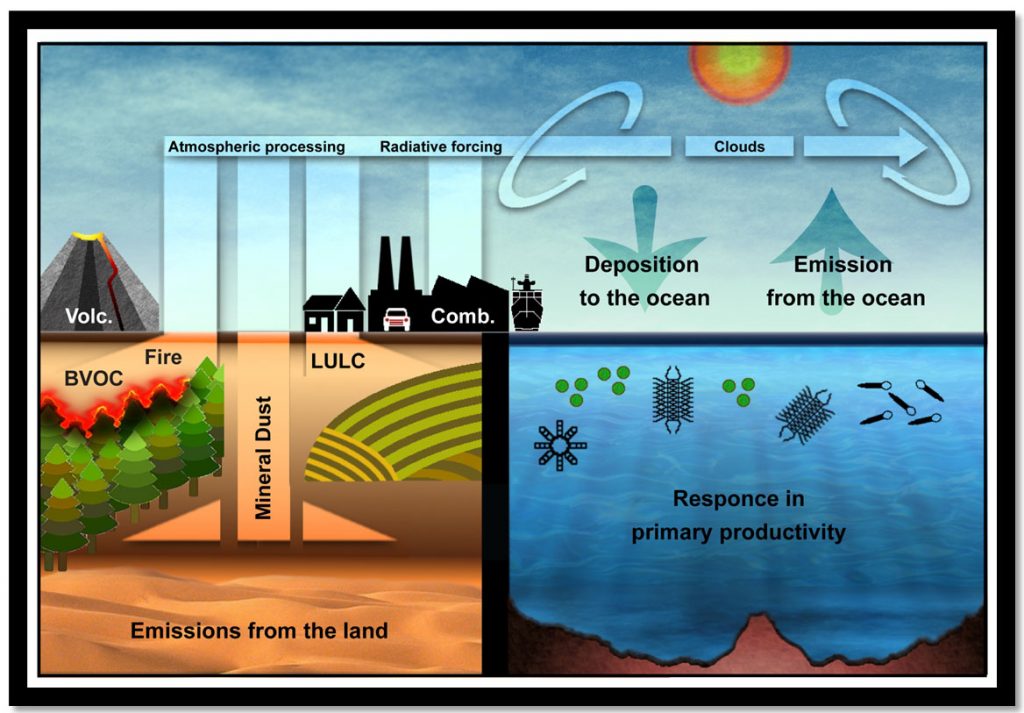New SCOR Working Group: Reducing Uncertainty in Soluble aerosol Trace Element Deposition
Quantifying the transfer of micronutrient trace elements and pollutants across the air-sea interface is a current research priority. The newly-established, SCOR Working Group 167, Reducing Uncertainty in Soluble aerosol Trace Element Deposition (RUSTED), brings together experts from ocean biogeochemistry, atmospheric and modelling communities to focus on assuring the quality of trace element solubility data produced from aerosol leaching schemes and to provide advice on their use in Earth System models. This will help constrain how atmospheric deposition of soluble iron and other trace elements from different sources modulates marine biological activity and, ultimately, the oceanic sequestration of atmospheric CO2. Key deliverables include: (1) a glossary of terms addressing terminology inconsistencies across communities; (2) Standard Operating Procedures for frequently used aerosol leaching schemes; (3) a comprehensive, open-access database of atmospheric trace element measurements, following FAIR (Findable, Accessible, Interoperable, and Reusable) data principles aimed to facilitate easier evaluation and calibration of global models than is currently possible. In addition, a workshop-seminar series will be held in India. Participation from the GEOTRACES community will be encouraged.
A call will shortly be released to invite researchers to contribute aerosol trace element (particularly iron) data produced within the last 30 years for inclusion in the database. Beyond its use in understanding the impacts of air-sea exchange, this dataset also has value for other fields including health and climate sciences.
RUSTED addresses several of the UN Decade of Ocean Science for Sustainable Development Priority Challenges (https://www.oceandecade.org/challenges/) helping to align our goals towards the realisation of a healthy future ocean. We look forward to working together as SCOR Working Group 167 to realise our common goals. For further information please contact Rachel Shelley (Rachel.shelley@uea.ac.uk), Morgane Perron (morgane.perron@univ-brest.fr) or Douglas Hamilton (dshamil3@ncsu.edu).

